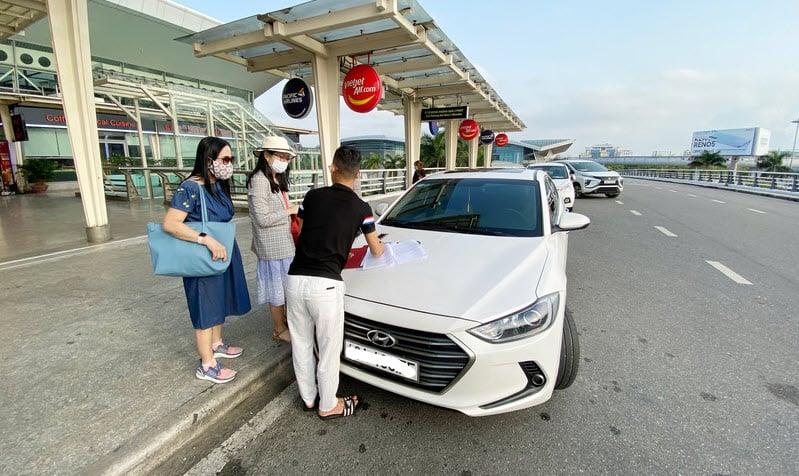In the context of modern traffic, cold fines have become familiar to people, especially those who regularly participate in traffic. Cold fines are a form of handling traffic violations detected through the surveillance camera system, after which, this information is transferred to the processing center and fines are issued after a certain period of time.

Illustration.
According to the provisions of Clause 8, Article 80 of Decree 100/2019/ND-CP, if a vehicle violates but the competent authority cannot stop it immediately, they will send a notice requesting the vehicle owner or driver to contact the competent authority for resolution. At this time, the vehicle owner's responsibility is to coordinate to determine who is driving the vehicle and violating.
If the vehicle owner is an individual and does not cooperate or cannot prove that he or she was not the driver when the violation occurred, they will be fined. If the vehicle owner is an organization and does not cooperate, the fine will be doubled, but not exceeding the maximum, unless the vehicle was stolen or used illegally.
Fines and responsibilities of car renters
When a fine is issued, the notice of violation will usually be sent to the vehicle owner first. However, if the owner can prove that he or she was not operating the vehicle at the time of the violation, they will not be liable for the fine. The problem arises when the owner cannot contact the renter due to changes in contact information or lack of evidence of the driver. In such cases, the owner is liable for the fine if there is no reasonable explanation.
What to do to avoid fines when renting a car?
To avoid risks when renting a car, car owners should take the following precautions:
1. Make a detailed car rental contract: The contract needs to clearly state the responsibility of the lessee in case of traffic violations, and also require the lessee to pay the fine if there is a violation. This helps create a legal basis for the car owner to request compensation or file a lawsuit when necessary.
2. Storing data from dash cams: Dash cams are useful tools to record vehicle usage, providing evidence to verify who was driving the vehicle at the time of the violation.
3. Requirement to provide complete personal information: Car renters need to provide documents such as driver's license, household registration, and identity card to verify their identity. Car owners can check this information through official websites of state agencies to ensure accuracy.
4. Deposit requirement: To ensure safety, the car owner should require the lessee to deposit a sum of money during the rental period. If any violation is detected, the car owner can deduct the fine from this deposit. After checking and no violation is detected, the car owner will return the deposit.
5. Regularly check for fines: Vehicle owners should regularly monitor information about vehicles that have been fined through official websites to grasp the situation. This helps to be proactive in handling violations when they arise.
Instructions for looking up fines online
There are many ways to look up information about fines, the most popular of which is through the official websites of state agencies:
1. Look up on the website of the Traffic Police Department
- Visit website: http://www.csgt.vn/
- Select "Look up traffic violations by image".
- Enter the license plate number, vehicle type and security code, then click "Search" to see the results.
2. Look up on the website of the Vietnam Register
- Visit website: http://www.vr.org.vn/ptpublic/
- Enter the license plate number and click "Search". Information about the violation, if any, will be displayed in the results section.
Looking up traffic fines is one of the measures to help people be more proactive in complying with traffic regulations and ensuring their rights when participating in traffic.
Source: https://www.congluan.vn/ai-phai-nop-tien-phat-khi-nguoi-thue-xe-bi-phat-nguoi-post313660.html




























![[Photo] National Assembly Chairman attends the seminar "Building and operating an international financial center and recommendations for Vietnam"](https://vphoto.vietnam.vn/thumb/1200x675/vietnam/resource/IMAGE/2025/7/28/76393436936e457db31ec84433289f72)







































































Comment (0)